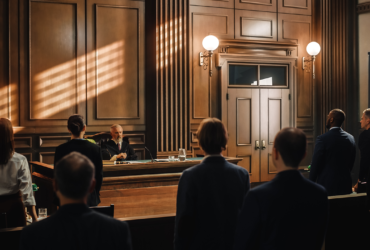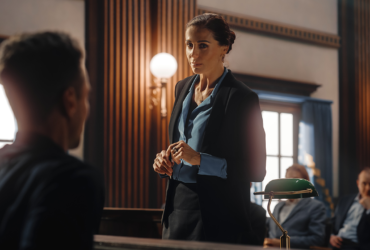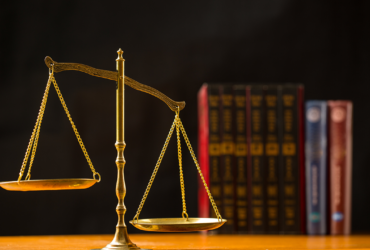At the end of the case each lawyer makes a closing argument hoping to convince the jury to find in their client’s favor
The closing argument by an attorney occurs after both sides have presented their case. Unlike the opening statement, which is limited to what the attorney intends the evidence to show, the closing argument focuses on what the attorney has proved in fact.
Closing Argument Limited To Only The Evidence That Has Been Admitted At Trial
In closing argument, the lawyers are allowed to use the exhibits that have been entered into evidence. The lawyers are also allowed to show blow-ups of some of the key jury instructions, including those that state what each side had to prove to win the jury’s verdict.
Some lawyers actually present blow-ups of the actual jury verdict instruction form and demonstrate to the jury how to fill out the form, based on what the lawyer claims to have proven by the evidence. Some judges do not permit this, claiming that instructing the jury on closing instructions belongs to the judge, not the lawyers.





